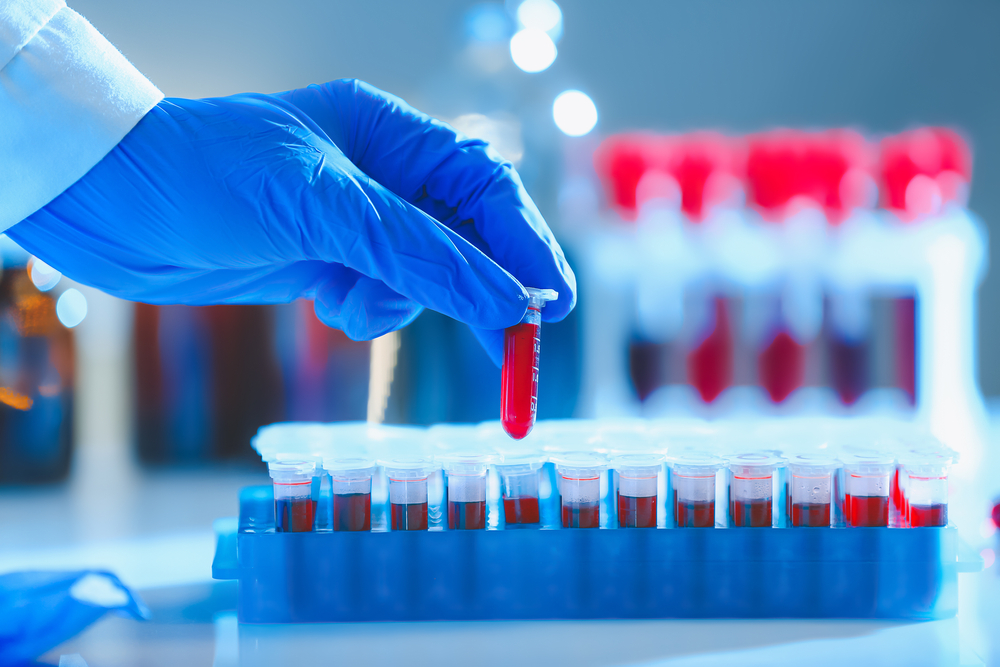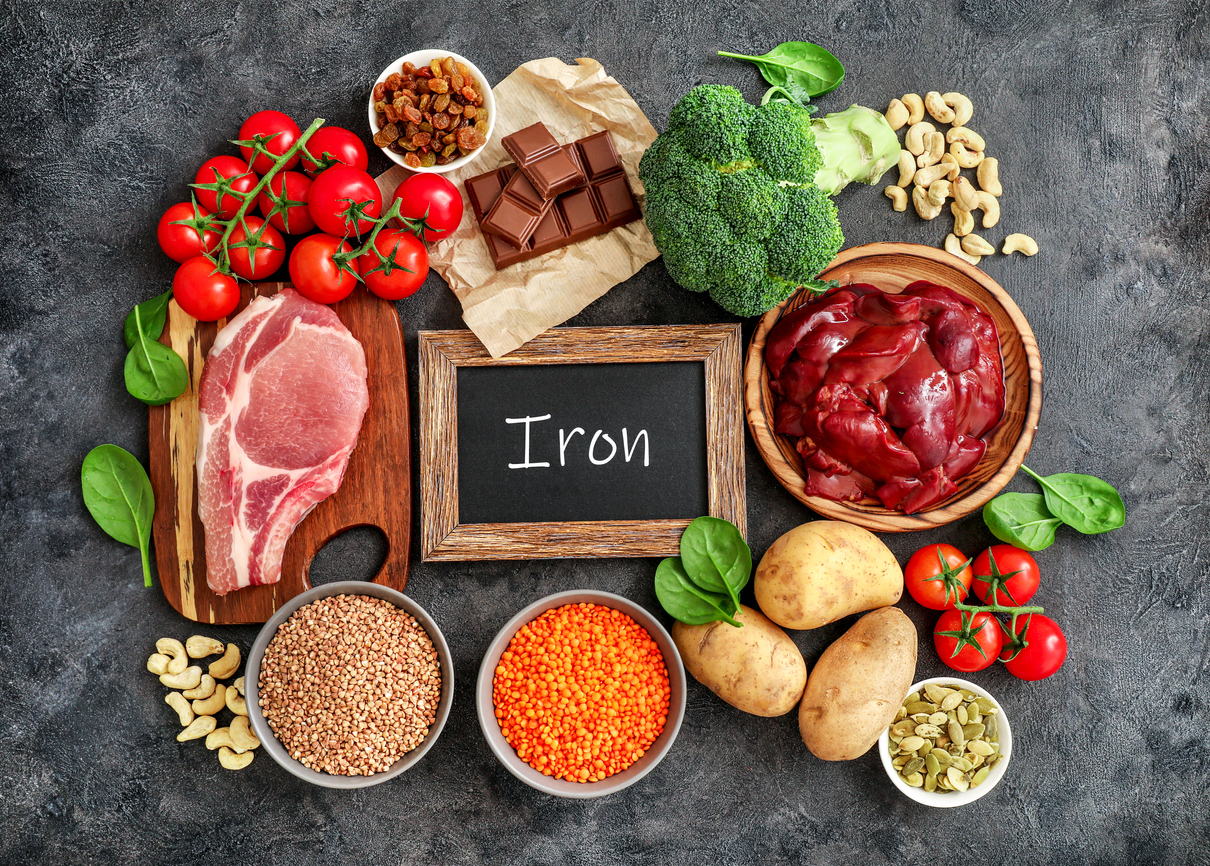Taking care of your body and priming it for a long life usually comes down to making sure your heart is healthy. Unfortunately, the shocking reality is that one in four deaths in the U.S. result from a heart-related issue, according to the Centers for Disease Control and Prevention (CDC). And while making sure to get plenty of exercise and avoiding certain foods can go a long way in cardiovascular upkeep, it can also be essential to focus on putting the right kinds of food into your body. Now, a new study has found that having a deficiency in this one mineral can make your heart disease risk soar. Read on to see what you should be working into your diet more often.
RELATED: If You Can Do This With Your Thumb, Your Heart May Be in Danger, Study Says.


The latest research comes from a study published on Oct. 6 in the European Society of Cardiology’s journal Heart Failure in which a team of scientists looked to explore the relationship between iron deficiency among the general population and heart disease. To collect data, researchers gathered 12,164 participants with a median age of 59 from across Europe and classified them as either iron deficient or not. However, unlike previous studies, the team then split those with iron deficiencies into two subgroups of absolute iron deficiency and functional iron deficiency.
“Absolute iron deficiency is the traditional way of assessing iron status, but it misses circulating iron,” Benedikt Schrage, MD, the study’s author from the University Heart and Vascular Center Hamburg, Germany, said in a statement. “The functional definition is more accurate as it includes both measures and picks up those with sufficient stores but not enough in circulation for the body to work properly.”
After finding that 60 percent of participants had absolute iron deficiency and 64 percent had functional iron deficiency as a beginning baseline, the team then conducted follow-ups for a mean span of 13.3 years. During this time, 8.5 percent of participants were diagnosed with cardiovascular disease and 4.7 percent died as a result of it. Adjustments were then made for risk factors such as diabetes, smoking, obesity, and cholesterol levels. Results found that functional iron deficiency was associated with a 24 percent increased risk of coronary heart disease, 26 percent elevated risk of death due to cardiovascular disease, and a 12 percent increased risk of all-cause mortality compared to those with no functional iron deficiency.


Researchers were then able to estimate how different health outcomes would have appeared if no participants had been diagnosed with iron deficiency at the outset of the study. “This analysis suggests that if iron deficiency had been absent at baseline, about 5 percent of deaths, 12 percent of cardiovascular deaths, and 11 percent of new coronary heart disease diagnoses would not have occurred in the following decade,” Schrage said in the statement.
“The study showed that iron deficiency was highly prevalent in this middle-aged population, with nearly two-thirds having functional iron deficiency,” he added. “These individuals were more likely to develop heart disease and were also more likely to die during the next 13 years.”
RELATED: Eating This Makes You 46 Percent More Likely to Die From Heart Disease.


While previous studies have found a relationship between iron deficiency in patients who had already been diagnosed with heart disease, this was the first to do so in a sample of the general population. But the team ultimately concluded that more research was necessary before establishing a direct cause-and-effect between a lack of iron and cardiovascular health. “This was an observational study, and we cannot conclude that iron deficiency causes heart disease,” Schrage said. “However, evidence is growing that there is a link and these findings provide the basis for further research to confirm the results.”
He also added that future studies should focus on younger sections of the populations from non-European cohorts, saying: “If the relationships are confirmed, the next step would be a randomized trial investigating the effect of treating iron deficiency in the general population.”
For more helpful health information sent straight to your inbox, sign up for our daily newsletter.


According to Mayo Clinic, iron deficiency is one of the most common dietary issues the general public faces. Lacking the vital mineral can cause anemia, which is a condition that affects the body’s ability to produce enough red blood cells to carry oxygen to the body’s tissues. Eventually, this can lead to the heart having to pump extra hard to compensate, potentially leading to heart disease in the long run.
The most common symptoms of iron deficiency are feeling unusually tired or weak, pale skin, shortness of breath, chest pains, fast or irregular heartbeat, headache, dizziness, and having cold hands or feet. Mayo Clinic points out that menstruating women are at exceptionally high risk due to blood loss, especially those with heavy periods.
You can ensure you’re getting plenty of iron in your diet by eating plenty of the right foods. Besides meat and seafood, there are plenty of iron-rich fruits and vegetables, including beans, lentils, tofu, tempeh, Brazil nuts, cashews, dark leafy vegetables, dried fruit such as raisins and apricots, mushrooms, and peas. It’s also recommended that you increase your vitamin C intake—which helps your body absorb iron—with fruits and vegetables such as broccoli, grapefruit, kiwi, leafy greens, melons, oranges, peppers, and tomatoes.
RELATED: Drinking One Glass of This a Day Slashes Your Heart Disease Risk, Study Says.